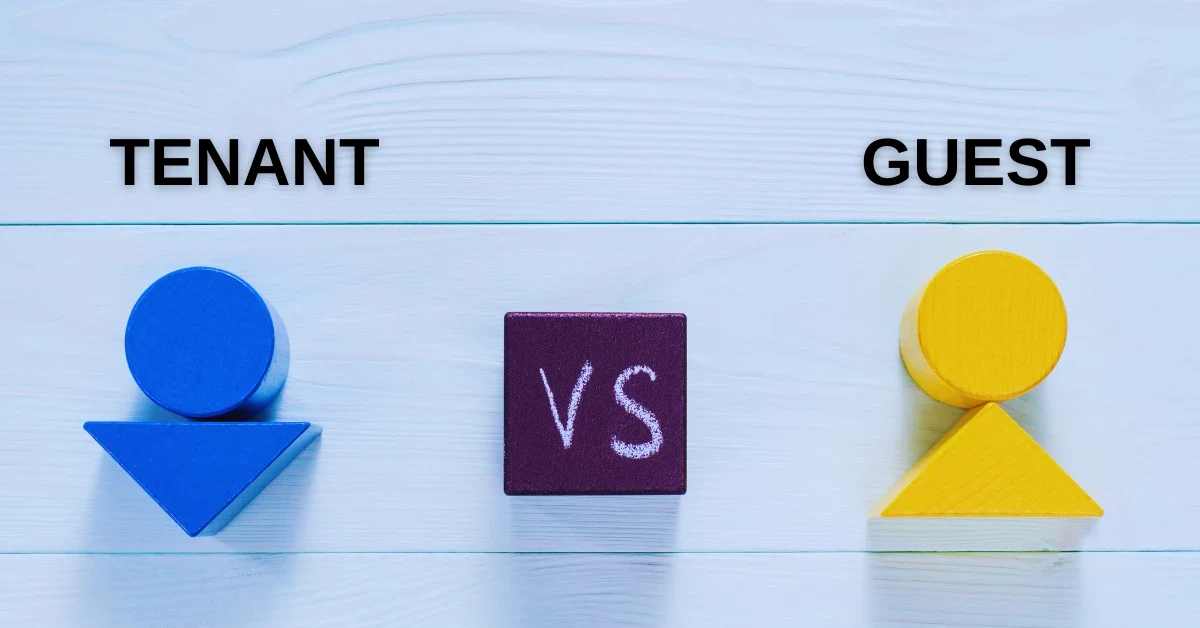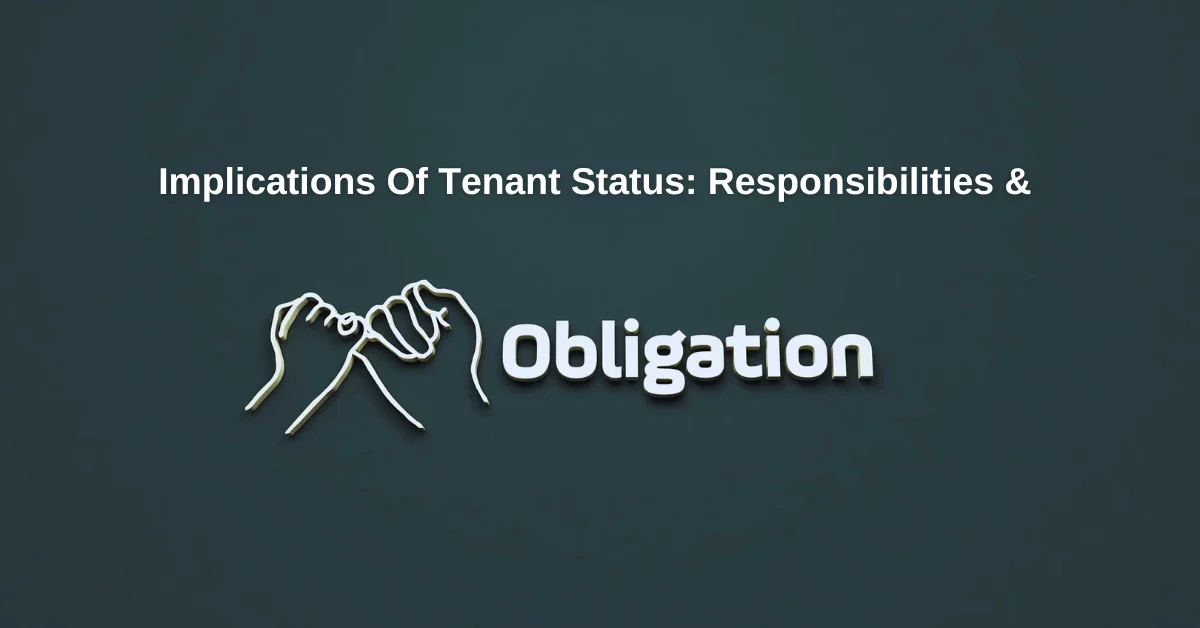When Does a Guest Become a Tenant in New York? Indicators
In new york, a guest becomes a tenant after legally occupying the premises for at least 30 consecutive days. This means that if a person stays in a property for 30 days or more and pays rent, it creates a landlord-tenant relationship between the guest and the tenant.
However, the length of stay is not the only factor used to determine if the guest has turned into a tenant. The court also considers whether the guest was given keys to the property, had access to common areas, and whether the host provided services such as housekeeping or meals.
It is essential to be aware of these factors in case of any legal issues related to guest occupancy or unauthorized tenancy.

Defining The Terms: Guest Vs Tenant
When it comes to renting a property in new york, it’s important to understand the specific terms related to the rental agreement.

In particular, knowing the difference between a guest and a tenant is critical to avoid any legal troubles.
Characteristics Of A Guest In New York
- A guest is defined as someone who has permission from the tenant to stay in the rental property temporarily.
- Usually, a guest stays in the property for a short time and doesn’t have any written agreement with the landlord.
- The guest doesn’t contribute to rent or utility payments.
- Guests don’t have any legal obligation or responsibility to maintain the property or follow any rules set by the landlord.
Defining Tenantship Under New York Law
- A tenant is defined as someone who has signed a lease agreement with the landlord.
- The lease agreement outlines rental terms such as rent amount, duration, penalties, and restrictions.
- Tenants have a legal obligation to follow the terms of the lease agreement and maintain the property.
- Tenants pay rent and contribute to utility payments according to the lease agreement.
- If a tenant violates the terms of the lease agreement, the landlord has the legal right to evict them.
Key Differences Between The Two
- Guests have limited rights and responsibilities, while tenants have legal obligations.
- Tenants have a written lease agreement, while guests don’t.
- Tenants pay rent and utilities, while guests don’t pay anything.
- Landlords can’t evict guests because they don’t have any legal contractual agreement with the landlord.
Understanding the difference between guests and tenants is crucial when renting a property.
While guests are temporary and don’t have any legal obligations or responsibilities under the rental agreement, tenants have legal obligations that must be followed.
Ensure that you read and understand the rental agreement before signing and avoid any violation that may lead to eviction.
Determining Tenant Status: Factors To Consider
New york city has specific regulations to determine when a guest becomes a tenant.
The law has pretty stringent standards, and anyone looking to sublet in NYC should be aware of them. Here are some of the main factors to consider:
Length Of Stay & Intentions Of Both Parties
- Staying longer than 30 days: If the guest has been staying beyond 30 days, it’s more likely that they have become a tenant.
- Primary residence: If the guest claims NYC residency, it indicates that they may be intending to stay long-term.
Payment Arrangements & Legal Agreements
- Rent payment: If the guest has begun to pay rent, they have more than likely become a tenant.
- Subletting laws: Ensure that you adhere to the accurate approach in dealing with a tenant under a subletting agreement.
Habitation Conditions & Tenant Rights
- Unrestricted access: If the tenant enjoys unrestricted access to the property, it indicates they have legally become an occupant entitled to tenant rights.
- Habitability standards: If the property’s living conditions do not follow legal standards, it may lead to possibly hazardous situations, making the situation illegal.
It’s essential to know the factors involved in determining whether someone is a tenant or a guest. Be sure to keep the above points in mind before subletting.
Implications Of Tenant Status: Responsibilities & Obligations

Landlord & Tenant Legal Relationship
When a guest stays in a new york apartment, there may be instances where they become tenants, and the relationship between landlord and tenant is a legal one.
Understanding the legal terms can prevent unfortunate misunderstandings. Here are some important points to consider:
- Tenants are entitled to the protections of the new york state rent stabilization law, including rent increase limits and protection against eviction.
- A tenant has the right to a one or two-year lease renewal and the landlord cannot refuse to renew without a valid reason, such as a violation of the rental agreement.
- If a tenant doesn’t pay rent, the landlord can evict them through a court proceeding.
- Tenants have the right to a safe and habitable living environment, and landlords must make necessary repairs within a reasonable time.
Legal & Financial Implications For The Tenant
Once a guest becomes a tenant, they have legal and financial obligations they were previously exempt from.
Being aware of these responsibilities can help tenants avoid penalties and legal conflicts. Here are some key implications:
- The tenant is responsible for paying rent on time and can face late fees and eviction if they fail to do so.
- Security deposits are common practice and can be used to cover damages, unpaid rent, or cleaning costs.
- Breaking a lease agreement can result in legal consequences and financial penalties.
- Tenants must follow the rules of the rental agreement, including maintaining the property and complying with building regulations.
Dispute Resolution Processes For Tenant Issues
Despite everyone’s best efforts, disagreements can arise between landlords and tenants.
Knowing the dispute resolution processes available in new york can help resolve these issues. Here are some options:
- If there is a dispute over the condition of the apartment, the tenant can file a complaint with the new york state division of Housing and community renewal, who will investigate.
- Tenants can file a complaint with the new york city commission on human rights if there is discrimination or harassment by the landlord or property management.
- In some cases, tenants can sue for damages and legal fees in small claims court.
Knowing the implications of becoming a tenant can save both landlords and tenants from legal difficulties.
Understanding legal rights and responsibilities in new york state can help create a peaceful and positive relationship between everyone involved.
Guest To Tenant Conversion: Legal Implications
When Does A Guest Become A Tenant In New York
As a landlord in new york city, it’s crucial to understand your rights and responsibilities, as well as those of your tenants.
One area that can be particularly confusing is the guest-to-tenant conversion process, which occurs when a guest stays in the rental unit for an extended period and becomes a tenant.
Legal Process Of The Transition
Converting a guest into a tenant involves following a specific legal process. This process includes:
- Providing a written notice to the guest that outlines the timeframe in which they must vacate the premises.
- Filing a holdover proceeding in court if the guest does not leave the rental unit within the specified timeframe.
- Presenting evidence to support the claim that the guest has become a tenant, such as rent payments or the regularity of the guest’s residence.
Requirements For The Landlord & Tenant
Both the landlord and the tenant have specific obligations during the guest-to-tenant conversion process. These requirements include:
- The landlord must provide the guest with reasonable notice to vacate the property and file the appropriate legal forms if the guest refuses to leave.
- The tenant must begin paying rent and adhere to the lease agreement’s terms upon the conversion to tenancy.
Tenant’S Rights And Obligations After Conversion
Once a guest becomes a tenant, they are entitled to certain rights and are responsible for specific obligations. These include:
- The tenant has the right to receive notice of any rent increase, and they are protected from retaliatory evictions by the landlord.
- The tenant is responsible for paying rent and complying with all laws and regulations related to tenancy.
- The tenant may seek legal assistance if they believe their rights have been violated.
The guest-to-tenant conversion process involves several legal implications for both landlords and tenants.
It’s essential to understand the unique requirements and obligations involved in this process to ensure that you are complying with all applicable laws and regulations.
Best Practices For Landlords To Avoid Tenantship

When Does A Guest Become A Tenant In New York
As a landlord, you are responsible for ensuring that your rental property is occupied by guests and not tenants.
Tenancy brings with it a host of legal obligations and requirements that can easily put you at a disadvantage if you are not careful.
So, how do you ensure that you are not unwittingly entering into a tenancy agreement with your guests? Here are some best practices to help you avoid tenants.
Qualifying Tenancy Indicators
Before we delve into the best practices for avoiding tenants, let’s first identify what qualifies as tenancy.
The tenancy is defined as “a right to possess and use property established by a lease or rental agreement between a landlord and tenant.
” some of the key indicators that your guest may have become a tenant include:
- Occupancy for an extended period: If your guest has stayed for more than 30 consecutive days, it may be considered a long-term stay.
- Regular rental payments: If your guest is paying on a regular cycle for their stay, this may be interpreted as rent.
- Personal items and decor: If the guest has moved their personal belongings in and has decorated the space, this may indicate that they see it as their long-term home.
- Key duplication: Providing a key for exclusive access makes it clear that the guest has possession over the space.
Communication & Transparency With Guests
One of the best ways to avoid tenants is through proactive communication and transparency.
As a landlord, you should be upfront about your expectations regarding your guests’ stay. Communicate the following:
- Length of stay: Ensure that guests are aware of the maximum length of stay, and offer alternatives if they require longer-term housing options.
- Limits on occupancy: Define how many people are allowed to stay on the property.
- Clear payment terms: Clearly define payment terms providing due dates, the amount due and the consequences of not paying as agreed.
- Proactively manage guests: Be sure to check in with your guests regularly throughout the duration of their stay.
Guest Agreements & Lease Terms
Having a clearly defined guest agreement can go a long way in preventing tenants. Here are some best practices when it comes to guest agreements and lease terms:
- Define the relationship clearly: Prior to taking up occupancy, ensure that you have the right documentation signed and acknowledged by both parties.
- Establish payment: Clearly define payment amounts including payment deadlines and consequences for not paying.
- Check-in / check-out details: Set out clear times that check-in and check-out are possible.
- House rules & regulations: The guest agreement should state any house rules, regulations, and expectations the guest is expected to adhere to.
- Consult an attorney: When in doubt, seek the assistance of an attorney specializing in tenants and landlords, to draft a lease agreement and offer guidance.
By following these best practices, you can ensure that your guest stays remain just that and don’t turn into a tenant’s long-term occupation.
As the landlord, you are responsible for ensuring a legal and safe environment for your guests, so make sure to consult and follow all local laws and regulations.
Guest Perspective: Understanding Tenant Rights & Responsibilities
When Does A Guest Become A Tenant In New York
New York is a vibrant city that attracts millions of visitors every year. The city is home to many hotels, motels, and short-term rentals that cater to the needs of tourists.
However, some guests who stay for a more extended period might end up crossing the line and becoming tenants.
Below we examine what happens when a guest becomes a tenant and the key rights and responsibilities involved from the guest’s perspective.
Rights & Protections Under Tenant Law
Once a guest becomes a tenant, they are entitled to several legal rights and protections under new york tenant law. These include:
- Right to a habitable dwelling that complies with health and safety standards.
- Right to privacy and quiet enjoyment of their rental premises.
- Right to protection from landlord and/or tenant harassment or discrimination.
- Right to receive advance notice of any rent increases or service changes.
Responsibilities Under Tenant Arrangements
When a guest becomes a tenant, they also assume new responsibilities. These include:
- Paying rent on time and in full, as stipulated in the rental agreement.
- Maintaining the rental premises in good condition and reporting any necessary repairs to the landlord in a timely manner.
- Adhering to all rules and guidelines established in the rental agreement, such as noise levels, pets, and smoking restrictions.
- Complying with all legal requirements, such as obtaining renter’s insurance and keeping the rental premises free from illegal activities.
Legal Recourse For Tenant Disputes
In case of disputes or disagreements between tenants and landlords, several legal options are available for tenants to seek recourse. These include:
- Contacting the landlord to attempt to resolve the dispute amicably.
- Filing a complaint with the new york state division of Housing and community renewal.
- Retaining an attorney and pursuing legal action in court.
New York tenant law provides various legal rights and protections for tenants, including those who initially come as guests.
Tenants also assume new responsibilities under the rental agreement. In case of disputes, tenants have several legal options available to seek recourse.
Tips For Successfully Navigating Guest And Tenant Status
When Does A Guest Become A Tenant In New York
Are you planning to host someone in your new york apartment? While having a guest overnight is generally no problem, having a guest stay longer can potentially make them a tenant.
Understanding Applicable Laws And Regulations
To avoid legal issues with guests potentially becoming tenants, it’s essential to understand the related laws and regulations in new york.
Here are some key points to keep in mind:
- In new york, tenants are people who have a lease or a rental agreement in their name.
- If someone stays in your apartment for more than 30 consecutive days, they may be considered a tenant under new york law.
- If you allow someone to stay in your apartment for free or in exchange for services, they may become a tenant under “surreptitious tenancy” laws.
Communicating Effectively With Landlords Or Guests
To avoid misunderstandings and conflicts between guests and landlords, it’s crucial to communicate effectively. Here are some tips:
- Clearly define the terms of the guest’s stay from the beginning.
- Put the agreement in writing and have both parties sign it.
- Discuss how long the guest can stay, who is responsible for any costs, and what happens if either side wants to terminate the agreement.
Seeking Professional Advice When Necessary
Navigating the legalities of guest and tenant status in new york can be complex.
Seeking professional advice from a real estate lawyer or tenant rights organization may be necessary if you’re unsure.
- Contact a real estate attorney or tenant rights organization for guidance.
- Obtain the agreement in writing with the help of a lawyer.
- Stay informed about changes in the law that may affect guests and tenants.
By following these tips, you can successfully navigate the potential legal pitfalls of guests who may become tenants in new york.
Remember to communicate clearly and seek professional guidance when needed. With proper planning and communication, you can enjoy hosting guests without any legal issues.
Frequently Asked Questions For When Does A Guest Become A Tenant In New York
What Are The Criteria For Someone To Become A Tenant In New York?
To become a tenant in new york, you need to establish a lease, which is a written or oral agreement between the tenant and the landlord.
Can A Guest Stay In A Rental Unit For An Extended Period?
If a guest stays in a rental unit for a prolonged period, they can be considered a tenant, which may affect the landlord-tenant relationship.
What Are The Legal Rights Of Someone Who Is Considered A Tenant?
Once someone is considered a tenant, they are protected by the landlord-tenant laws in new york and are entitled to certain rights, such as habitability and privacy.
What Are The Consequences Of Mistaking A Guest For A Tenant?
Mistaking a guest for a tenant can have legal and financial consequences for both the tenant and the landlord, including eviction and cancellation of insurance policies.
Conclusion
Based on the regulations, guests who stay for more than 30 days in new york are considered tenants.
However, there are several factors that need to be considered before determining a guest’s status.
These factors include the length of stay, the type of property, and the agreement between the landlord and the guest.
As a landlord, it’s essential to understand and abide by the tenancy laws to avoid legal issues and disputes.
As a guest, it’s crucial to know your rights, especially if you intend to stay for an extended period.
Ultimately, determining whether a guest is a tenant depends on the particular circumstances surrounding their stay.
It is essential to consult an attorney if you’re unsure about your status or obligations.
By following the relevant laws and regulations, both landlords and guests can ensure a smooth and hassle-free tenancy experience.
Where is the following in New York State law: In new york, a guest becomes a tenant after legally occupying the premises for at least 30 consecutive days. This means that if a person stays in a property for 30 days or more and pays rent, it creates a landlord-tenant relationship between the guest and the tenant.